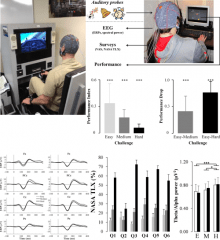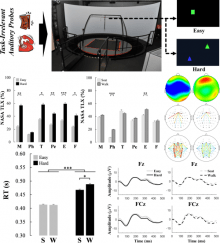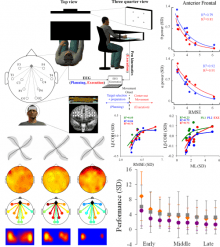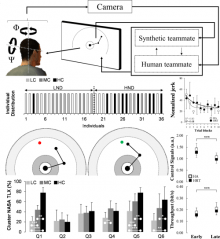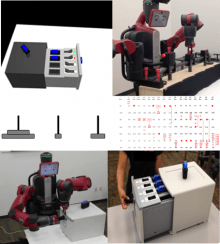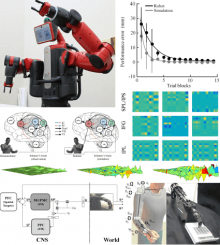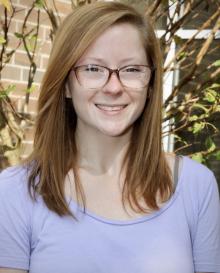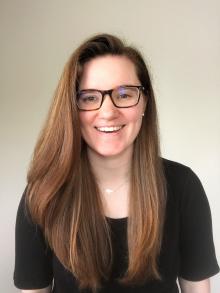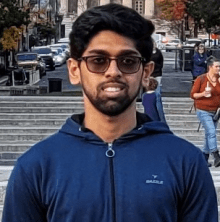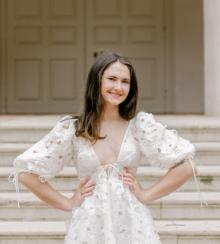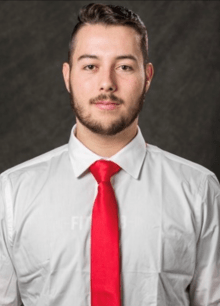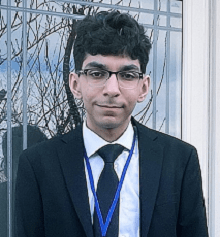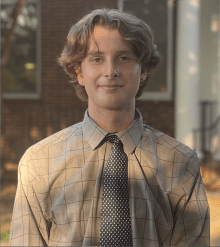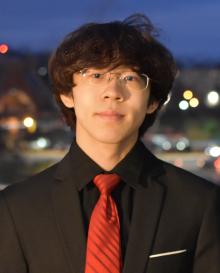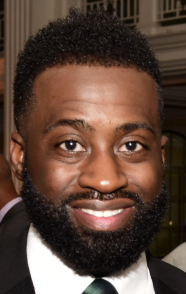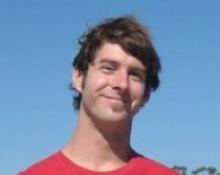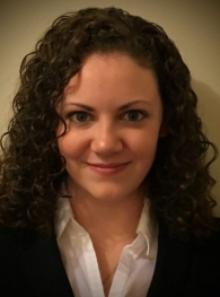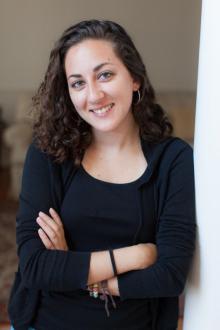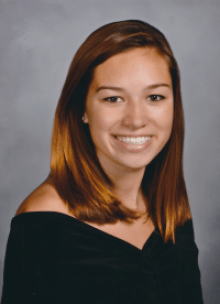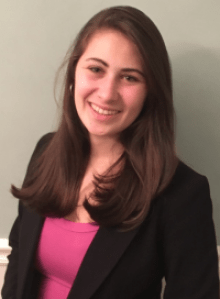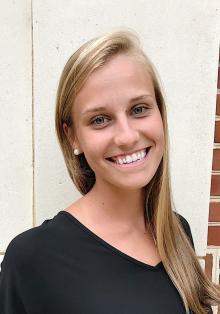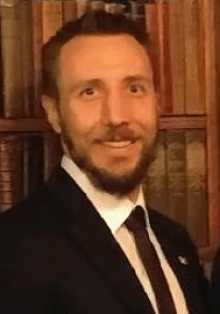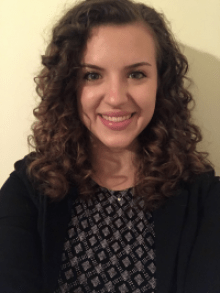Experimenting the Brain Processes Through Cognitive-Motor Neuroscience, Robotics and Computational Approaches
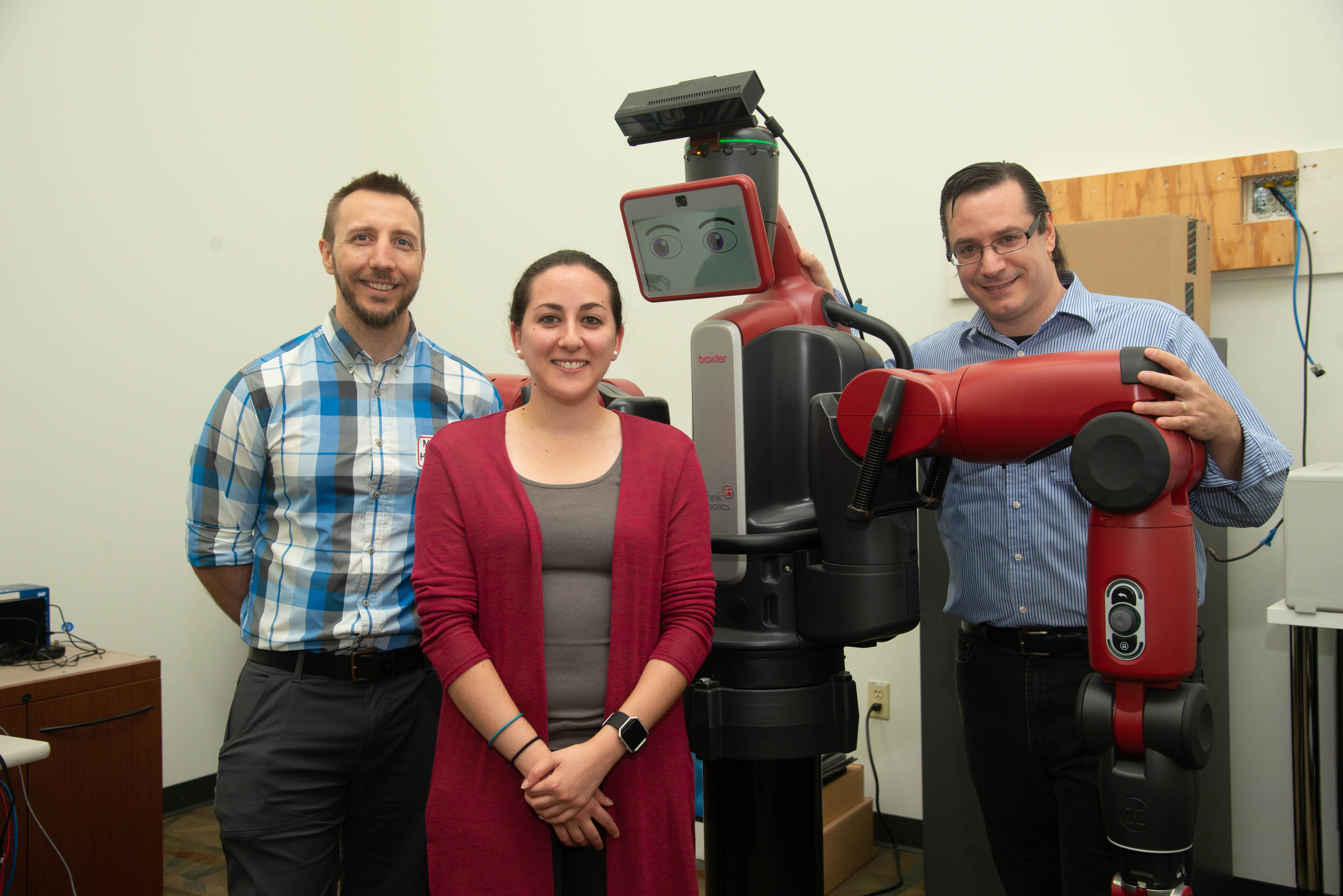
The Neuromotor Control and Learning (NMCL) Laboratory focuses on understanding the brain processes underlying human motor behavior by employing experimental cognitive-motor neuroscience, computational and robotics-based approaches.
Department: Kinesiology
Room Number: 2138
Director: Rodolphe Gentili
Office Phone Number: (301) 405-2490
Email: rodolphe@umd.edu
In order to better understand human motor control and learning processes, we employ an inclusive strategy involving cognitive-motor neuroscience, biomechanical analyses, and computational neuroscience that incorporates both experimental and modeling approaches. Our experimental work utilizes brain imaging and behavioral techniques to investigate the role of internal representations and cognitive-motor processes during human motor performance and learning. The modeling efforts include neurophysiologically plausible architectures, which mimic brain structures and/or functions, as well as biomechanics of effectors. The models are then tested both in computer simulations and by conducting "robotic experimentation" with actual anthropomorphic robot effectors, to i) validate the behavior of the neurophysiological model in the real world by comparing its performance to the human counterpart and ii) to examine human cognitive-motor processes in a context of human-robot team dynamics.
The experimental and computational approaches are complementary and enable to have an integrative perspective on human adaptive cognitive-motor behavior. The empirical work provides the basis on which to build and refine the computational models. In turn, the computational modeling effort is used as a tool to inform the development of empirical hypotheses as well as public health applications.
Participate!
We are always looking for highly motivated graduate and undergraduate students who would like to gain research experience by working in our lab. Interested students with backgrounds in Kinesiology, Biology, Computer Science, Engineering, Mathematics, Neuroscience, and Physical Therapy are encouraged to contact Dr. Gentili.
In addition, if you are interested in participating in one of our ongoing research studies please email Dr. Gentili at rodolphe@umd.edu.
We are very proud of our collaborations with:
- Auburn University, School of Kinesiology, Auburn
- Department of Aerospace Engineering, Vertical Lift Research Center of Excellence (AGRC), University of Maryland, College Park
- Department of Computer Science, University of Maryland, College Park
- Drexel University, School of Biomedical Engineering, Science and Health Systems, Philadephia
- Epidemiology & Public Health, University of Maryland School of Medicine, Baltimore
- Institute of Systems Research, A. James Clark School of Engineering, University of Maryland, College Park
- Maryland Robotics Center, University of Maryland, University of Maryland, College Park
- Program in Neuroscience and Cognitive Science, University of Maryland, University of Maryland, College Park
- Syracuse University, Departmemt of Electrical Engineering and Computer Science, Syracuse
- The United States Naval Academy, Annapolis
- United States Food & Drug Administration, Human-Device Interaction group, Silver Spring
- United States Department of Veterans Affairs - Washington DC
- Walter Reed National Military Medical Center
Cognitive-Motor Control
Examination of Mental Workload Under Various Cognitive-Motor Task Demands
This research line examines the dynamics of specific task-relevant processes such as attentional resource allocation and working memory underlying changes of mental workload under various cognitive-motor demands. To this end, the cortical dynamics are examined via electroencephalography (EEG) in both the temporal (e.g., event-related potentials) and spectral (local activity, functional connectivity) domains along with behavioral performance in individuals who complete various levels of cognitive-motor challenge. This work informs the underlying neural mechanisms of cognitive-motor behavior and has the potential for enhancing assessment and improvement of human performance in real-world situations (e.g., operational environment).
Collaborators
Bradley Hatfield (University of Maryland); Matthew Miller (Auburn University); Hyuk Oh (University of Maryland); United States Naval Academy.
Representative Publications
Jaquess KJ, Gentili RJ, Lo LC, Oh H, Zhang J, Rietschel JC, Miller MW, Tan YY, Hatfield BD. (2017). Empirical evidence for the relationship between cognitive workload and attentional reserve. International Journal of Psychophysiology 121:46-55.
Gentili RJ, Jaquess KJ, Shuggi IM, Shaw EP, Oh H, Lo LC, Tan YY, Domingues CA, Blanco JA, Rietschel JC, Miller MW, Hatfield BD. (2018). Combined assessment of attentional reserve and cognitive-motor effort under various levels of challenge with a dry EEG system. Psychophysiology 55(6):e13059.
Mental Workload Assessment in Individuals With Lower Limb Loss
This project employs a combined examination of the cortical dynamics via EEG and behavior to investigate the changes in mental workload and performance in injured individuals with lower limb loss (e.g., transtibial; transfemoral) who operate prostheses under various cognitive-motor demands during dual-task walking. This work investigates the cognitive-motor mechanisms in clinical population during operation of lower limb prostheses. Implications of this work include the development of assessment and training approaches for individuals with lower limb loss.
Collaborators
Shuo Chen (University of Maryland); Bradley Hatfield (University of Maryland); Matthew Miller (Auburn University); Walter Reed National Military Medical Center.
Representative Publications
Shaw EP, Rietschel JC, Hendershot BD, Pruziner AL, Miller MW, Hatfield BD, Gentili RJ. (2018). Measurement of attentional reserve and mental effort for cognitive workload assessment under various task demands during dual-task walking. Biological Psychology 134:39–51.
Shaw EP, Rietschel JC, Shuggi IM, Xing Y, Hendershot BD, Pruziner AL, Chen S, Miller MW, Hatfield BD, Gentili RJ. (2018). Evaluation of cerebral cortical networking as a measure of cognitive workload during dual-task walking under various levels of challenge. Accepted. 19th NASPSPA Conference, 21-23 June 2018, Denver, CO, USA.
COGNITIVE-MOTOR PRACTICE & LEARNING
Evaluation of Concurrent Behavioral and Cortical Dynamics During Adaptation To Altered Environments
This research line investigates the concomitant changes in behavioral performance and cortical dynamics measured via EEG or fNIRS (functional near infrared spectroscopy) to assess the changes in executive function (inhibition, attention) during adaptation in individuals who face altered environment. This work informs the underlying cognitive-motor mechanisms of adaptive human motor control and has potential applications for developing systems to assess and improve performance in healthy as well as clinical populations.
Collaborators
Bradley Hatfield (University of Maryland); Hyuk Oh (University of Maryland); Patricia Shewokis (Drexel University).
Representative Publications
Gentili RJ, Patricia A Shewokis, Ayaz H, Contreras-Vidal JL. (2013). Functional near-infrared spectroscopy-based correlates of prefrontal cortical dynamics during a cognitive-motor executive adaptation task. Frontiers in Human Neuroscience, 4(7):277.
Gentili RJ, Bradberry TJ, Oh H, Costanzo ME, Kerick SE, Contreras-Vidal JL, Hatfield BD. (2015). Evolution of cerebral cortico-cortical communication during visuomotor adaptation to a cognitive-motor executive challenge. Biological Psychology, 105:51-65.
Performance and Mental Workload Assessment During the Acquisition of a Novel Skill Using Human-Robot Interfaces
This line of research aims to examine the behavioral performance and EEG cortical dynamics in individuals who have to practice/learn to operate a robotic effector through a human-robot interface. Individuals must perform reaching movements by employing unusual body segments (e.g., head motion) under various cognitive-motor task demands. This work can inform the human cognitive-motor mechanisms when human performs alone or in a context of team dynamics with applications to human-robot interactions as well as provide the basis for future work with clinical populations who operate assistive systems.
Collaborators
Jeffrey Herrmann (University of Maryland); Hyuk Oh (University of Maryland); Patricia Shewokis (Drexel University).
Representative Publications
Shuggi IM, Oh H, Shewokis PA, Gentili RJ. (2017). Mental workload and motor performance dynamics during practice of reaching movements under various levels of task difficulty. Neuroscience. 360, 166-179.
Shuggi IM, Shewokis PA, Herrmann JW, Gentili RJ. (2017). Changes in motor performance and mental workload during learning of reaching movements: a team dynamics perspective. Experimental Brain Research. 236(2), 433-451.
Examination of High-Level Planning During Performance and Learning of Complex Action Sequences
This research aims to examine the performance and learning of complex action sequences (e.g., task maintenance, Tower of Hanoi) in human and humanoid robots. We deploy a novel computational approach to assess in detail the quality of the sequences generated to perform a complex task with constraints and success criteria ranging from fairly controlled to very flexible. This work can reveal the cognitive-motor mechanisms of human behavior in both healthy and clinical populations and has implication for the assessment of complex performance in humanoid robots as well as human-robot interactions.
Collaborators
Garrett Katz (Syracuse University); James Reggia (University of Maryland).
Representative Publications
Katz GE, Huang DW, Hauge TC, Gentili RJ, Reggia JA. (2017). A novel parsimonious cause-effect reasoning algorithm for robot imitation and plan recognition. IEEE Transactions on Cognitive and Developmental Systems, 10(2), 177 - 193.
Hauge TC, Katz G, Huang DW, Davis G, Reggia JA, Gentili RJ. (2017). High-level motor planning assessment during performance of complex actions in humans and humanoid robots: A computational approach. 47th Annual Meeting of the Society for Neuroscience Meeting, November 11-15, Washington DC, DC, USA.
NEURAL MODELS & NEUROROBOTICS
Neural Network Modeling and Neurorobotic Control Systems
This research line complements the empirical work described above by modeling specific sensori-/cognitive-motor mechanisms to generate predictions that can be tested in humans. This will increase understanding of the relevant neural processes as well as develop neurorobotic control systems for humanoid robots to examine human cognitive-motor mechanisms within the context of team dynamics. The predictions and validations of these neural models are based on simulated behavioral (e.g., kinematics) and/or neurophysiological (e.g., synthetic fMRI) data.
Collaborators
Garrett Katz (Syracuse University); Hyuk Oh (University of Maryland); James Reggia (University of Maryland).
Representative Publications
Gentili RJ, Oh H, Huang D-W, Katz GE, Miller RH, Reggia JA. (2015). A neural architecture for performing actual and mentally simulated movements during self-intended and observed bimanual arm reaching movements. International Journal of Social Robotics, 7(3), 371-392.
Oh H, Braun AR, Reggia JA, Gentili RJ. (2018). Fronto-parietal mirror neuron system modeling: visuospatial transformations support imitation learning independently of imitator perspective. Human Movement Science. In press.
Resources
Hardware
Human Experimental Platforms:
- Wacom digitizing tablet
- Motion capture system (Optotrak)
- IMU (Xsens)
- Data Glove (CyberGlove)
Computational/Robotic Platforms:
- Humanoid torso with head and two 7 DOF arms (Baxter; Rethink Robotics)
- Humanoid finger (ShadowHand)
Software
- Matlab (Linux and Windows OS)
- Xsens software
- Optotrak software
- Cyberglove software
Additional systems and software such EEG (Brainvision) are also available through the Cogmo Division.
Faculty
Rodolphe Gentili, Ph. D. (email: rodolphe@umd.edu)
Background: Dr. Gentili is an Associate Professor in the Department of Kinesiology. He is a faculty member of the Program in Neuroscience and Cognitive Science and the Maryland Robotics Center.
Hyuk Oh; Ph.D. (email: hyukoh@umd.edu)
Background and research interests: Hyuk was trained in Computer Science and computational neuroscience at the University of Southern California and then at the University of Maryland-College Park. His work focuses on developing neurally inspired network models to inform the cognitive-motor behavior in human as well as on neuroimaging data processing.
Graduate Students
William Galway (Ph.D. Student; email: bgalway@terpmail.umd.edu)
Background and research interests: Before joining the lab William headed the Clinical Education Department at Biodex Medical Systems and spent 10 years as a Clinical Athletic Trainer at Hospital for Special Surgery in New York. He has been working for more than thirty years in the sports medicine and motor rehabilitation industry. His current research focuses how human mental workload is affected during motor performance under various levels of task difficulty and performance context.
Alex Shaver (Ph.D. Student; email: shavera@umd.edu)
Background and research interests: Before coming to UMD, Alex attended East Carolina University where she completed her Bachelor of Science degree in exercise physiology. Alex stayed at ECU to complete her Master of Science degree in biomechanics and neuromotor control, writing her master’s thesis on aging and tool-use. Currently, Alex’s research in the NMCL Lab at UMD mainly focuses on sensorimotor integration and mental workload during complex action sequence execution.
Anna Packy; (Ph.D. Student; email: apacky@umd.edu)
Background and research interests: Before joining the lab Anna received a Bachelor of Science degree in Mechanical Engineering and Kinesiology at the University of Maryland. Her research focuses on collaborative in-person Human-Robot Interactions in a cognitive-motor task context. Specifically, she is investigating how the Robot's behavior impacts cognitive-effort, motor performance, trust, self-efficacy, attribution and workload dynamics in the human teammate. Her work aims to better understand how humans are impacted in Human-Robot teaming environments to assist in future rehabilitation research (e.g., exoskeletons, prostheses).
Jayesh Jayashankar; M.Sc. (Ph.D. Student; email: jayeshj@umd.edu)
Background and research interests: Before joining the lab Jayesh received a Masters in Robotics at the University of Maryland. His research focuses on examining the effects of robotic assistance on mental workload and task performance to inform the development of passive brain-computer interfaces.
Elizabeth Kerman; Ph.D. Student; email: emkerman@umd.edu) Background and research interests: Before joining the lab, Lizzie received a Bachelor of Science degree in Psychology with a minor in Biology at the College of William & Mary. At William & Mary, Lizzie interned with Tribe Football, conducting her research using electrophysiological indices of attention and motor control to learn more about repetitive concussions and sub-concussions endemic to collision sports.
Hunter Frisk; M.Sc. Student; email: hfrisk@umd.edu) Background and research interests: Before joining the lab, Hunter received a Bachelor of Science degree in Exercise Science at Lakeland University. Previously publishing biomechanics research, his work now focuses on sensory and motor manipulation and its impact on motor planning.
Undergraduate Students
Arya Teymourlouei (UG Res. Assist., email: ateymo2@terpmail.umd.edu)
Background and research interests: Arya is an undergraduate student in Computer Science at University of Maryland. His research focuses on designing, implementing, and simulating computational methods for processing complex neural data sets (for example, EEG time series data). Arya works in collaboration with Dr. James Reggia from the Department of Computer Science at UMD.
Joshua Stone (UG Res. Assist., email: jstone14@terpmail.umd.edu)
Background and research interests: Joshua is an undergraduate honors student in Electrical and Computer Engineering at University of Maryland. His research interests include passive brain-computer interfaces, EEG signal processing, and explainable artificial intelligence (XAI). Josh has collaborated on work related to the prediction of mental workload using EEG signals.
Daniel Gross (UG Res. Assist.; email: digross@terpmail.umd.edu )
Background and research interests: Daniel is an undergraduate student majoring in Neuroscience at the University of Maryland-College Park. His research interests include the collection and processing of data in order to examine the underlying cognitive-motor control and learning processes of mental workload. His interest in orthopedics led him to this lab which he believes exposed him to concepts at the nexus of neuroscience and kinesiology.
Minsi Hu (UG Res. Assist; email: mhu0315@umd.edu)
Background and research interests: Minsi is an undergraduate student double-majoring in Computer Science and Mathematics at the University of Maryland. His research interests include the use of machine learning models in cognitive-motor neuroscience. Minsi works in collaboration with Dr. James Reggia from the Department of Computer Science at UMD.
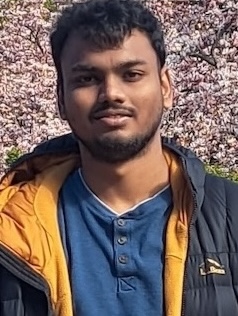 Haniel Jacob (Graduate Res. Assist; email: haniel20008@gmail.com)
Haniel Jacob (Graduate Res. Assist; email: haniel20008@gmail.com)
Background and research interests: Haniel is a recent graduate in Computer Science at Boston University. His research interests include Machine Learning and analyzing time series data. Haniel has collaborated on building software to examine cognitive-motor performance in individuals during human-robot interaction and EEG analysis using time series data.
Ruby Barredo (UG Res. Assist; email: rzpbarredo@gmail.com)
Background and research interests: coming soon.
Audrey Pham (UG Res. Assist; email: aklpham@terpmail.umd.edu)
Background and research interests: coming soon.
Journal articles
Papaxanthis C, Schieppati M, Gentili RJ, Pozzo T. (2002). Imagined and actual arm movements have similar durations when performed under different conditions of direction and mass. Experimental Brain Research, 143(4):447-452.
Gentili RJ, Cahouet V, Ballay Y, Papaxanthis C. (2004). Inertial properties of the arm are accurately predicted during motor imagery. Behavioural Brain Research, 155(2):231–239.
Courtine G, Papaxanthis C, Gentili RJ, Pozzo T. (2004). Gait-dependent motor memory facilitation in covert movement execution. Brain Research, Cognitive Brain Research, 22(1):67-75.
Gentili RJ, Papaxanthis C, Pozzo T. (2006). Improvement and generalization of arm motor performance through motor imagery practice. Neuroscience, 137(3):761-772.
Gentili RJ, Cahouet V, Papaxanthis C. (2007). Motor planning of arm movements is direction-dependent in the gravity field. Neuroscience, 145(1):20-32.
Gentili RJ, Papaxanthis C, Ebadzadeh M, Eskiizmirliler S, Ouanezar S, Darlot C. (2009). Integration of gravitational torques in cerebellar pathways allows for the dynamic inverse computation of vertical pointing movements of a robot arm. Public Library of Science ONE, 4(4):e5176.
Bradberry TJ, Gentili RJ, Contreras-Vidal JL. (2010). Reconstructing three-dimensional hand movements from noninvasive electroencephalographic signals. Journal of Neuroscience, 30(9): 3432-3437.
Gentili RJ, Han CE, Schweighofer N, Papaxanthis C. (2010). Motor learning without doing: trial-by-trial improvement in motor performance during mental training. Journal of Neurophysiology, 104(2):774-783.
Bradberry TJ, Gentili RJ, Contreras-Vidal JL. (2011). Fast attainment of computer cursor control with noninvasively acquired brain signals. Journal of Neural Engineering, 8(3):036010.
Gentili RJ, Bradberry TJ, Oh H, Hatfield BD, Contreras-Vidal JL. (2011). Cerebral cortical dynamics during visuomotor transformation: adaptation to a cognitive-motor executive challenge. Psychophysiology, 48(6):813-824.
Rietschel JC, Miller MW, Gentili RJ, Goodman RN, McDonald CG, Hatfield BD. (2012). Cerebral-cortical networking and activation increase as a function of cognitive-motor task difficulty. Biological Psychology, 90(2):127-133.
Gentili RJ, Patricia A Shewokis, Ayaz H, Contreras-Vidal JL. (2013). Functional near-infrared spectroscopy-based correlates of prefrontal cortical dynamics during a cognitive-motor executive adaptation task. Frontiers in Human Neuroscience, 4(7):277.
Miller MW, Presacco A, Groman LJ, Bur S, Rietschel JC, Gentili RJ, McDonald CG, Iso-Ahola S, Hatfield BD. (2014). The effects of team environment on cerebral cortical processes and attentional reserve. Sport, Exercise, and Performance Psychology. 3(1), 61-74.
Di-Wei Huang, Gentili RJ, Reggia JA.(2015). Self-Organizing Maps Based on Limit Cycle Attractors. Neural Networks, 63:208-22.
Gentili RJ, Bradberry TJ, Oh H, Costanzo ME, Kerick SE, Contreras-Vidal JL, Hatfield BD. (2015). Evolution of cerebral cortico-cortical communication during visuomotor adaptation to a cognitive-motor executive challenge. Biological Psychology, 105:51-65.
Gentili RJ, Oh H, Huang D-W, Katz GE, Miller RH, Reggia JA. (2015). A neural architecture for performing actual and mentally simulated movements during self-intended and observed bimanual arm reaching movements. International Journal of Social Robotics, 7(3), 371-392.
Gentili RJ, Papaxanthis C. (2015). Laterality effects in motor learning by mental practice in right-handers. Neuroscience. 297:231-42.
Gentili RJ, Oh H, Kregling VA, Reggia JA. (2016). A cortical model for inverse kinematics computation of a humanoid finger with mechanically coupled joints. Bioinspiration & Biomimetics, 11(3):036013.
Huang DW, Gentili RJ, Katz GE, Reggia JA. (2017). A limit-cycle self-organizing map architecture for stable arm control. Neural Network. 85:165-181.
Blanco JA, Johnson MK, Jaquess KJ, Oh H, Lo L-C, Gentili RJ, Hatfield BD. (2016). Quantifying cognitive workload in simulated flight using passive, dry EEG measurements. IEEE Transactions on Cognitive and Developmental Systems. IEEE Transactions on Cognitive and Developmental Systems, 10(2), 373 - 383.
Katz GE, Huang DW, Hauge TC, Gentili RJ, Reggia JA. (2017). A novel parsimonious cause-effect reasoning algorithm for robot imitation and plan recognition. IEEE Transactions on Cognitive and Developmental Systems, 10(2), 177 - 193.
Shuggi IM, Oh H, Shewokis PA, Gentili RJ. (2017). Mental workload and motor performance dynamics during practice of reaching movements under various levels of task difficulty. Neuroscience. 360, 166-179.
Jaquess KJ, Gentili RJ, Rietschel JC, Lo L-C, Prevost M, Miller MW, Mohler JM, Oh H, Tan YY, Hatfield BD. (2017). Cognitive workload assessment in pilots under various task demands. International Journal of Psychophysiology, 121, 46-55.
Gentili RJ, Jaquess KJ, Shuggi IM, Oh H, Lo LC, Tan YY, Domingues CA, Blanco JA, Rietschel JC, Miller MW, Hatfield BD. (2017). Combined assessment of attentional reserve and cognitive effort under various levels of challenge with a dry EEG system. Psychophysiology. In press.
Shuggi IM, Shewokis PA, Herrmann JW, Gentili RJ. (2017). Changes in motor performance and mental workload during learning of reaching movements: a team dynamics perspective. Experimental Brain Research. 236(2), 433-451.
Shaw EP, Rietschel JC, Hendershot BD, Pruziner AL, Miller MW, Hatfield BD, Gentili RJ. (2018). Measurement of attentional reserve and mental effort for cognitive workload assessment under various task demands during dual-task walking. Biological Psychology, 134, 39-51.
Oh H, Braun AR, Reggia JA, Gentili RJ. (2018). Fronto-parietal mirror neuron system modeling: visuospatial transformations support imitation learning independently of imitator perspective. Human Movement Science. In press.
Jaquess KJ, Lo L-C, Oh H, Lu C, Ginsberg A, Tan YY, Lohse KR, Miller MW, Hatfield BD, Gentili RJ. (2018). Changes in mental workload and motor performance throughout multiple practice sessions under various levels of task difficulty. Neuroscience. In press.
Conference proceedings
Gentili RJ, Bradberry TJ, Hatfield BD, Contreras-Vidal JL. (2008). A new generation of non-invasive biomarkers of cognitive-motor states with application to smart brain computer interfaces. Proceeding of the 16th European Signal Processing Conference (EUSIPCO-2008), EURASIP Society, 2008, August 25-27, Lausanne, Switzerland.
Bradberry TJ, Gentili RJ, Contreras-Vidal JL. (2009). Decoding three-dimensional hand kinematics from electroencephalographic signals. Proceedings of the 31st Annual International Conference of the IEEE Engineering in Medicine and Biology Society (EMBS ’09), September 2-6, p. 5010-3013, Minneapolis, USA.
Gentili RJ, Bradberry TJ, Hatfield BD, Contreras-Vidal JL. (2009). Brain biomarkers of motor adaptation using phase synchronization. Proceedings of the 31st Annual International Conference of the IEEE Engineering in Medicine and Biology Society (EMBS ’09), September 2-6, p. 5930-5933, Minneapolis, USA.
Gillespie RB, Contreras-Vidal JL, Shewokis PA, O'Malley MK, Brown JD, Agashe H, Gentili RJ, Davis A. (2010). Toward improved sensorimotor integration and learning using upper-limb prosthetic devices. Proceedings of the 32nd Annual International Conference of the IEEE Engineering in Medicine and Biology Society (EMBS ’10), August 31 - September 4, p. 5077-5080, Buenos Aires, Argentina.
Gentili RJ, Hadavi C, Hayaz H, Shewokis PA, Contreras-Vidal JL. (2010). Hemodynamic correlates of visuomotor adaptation by functional near infrared spectroscopy. Proceedings of the 32nd Annual International Conference of the IEEE Engineering in Medicine and Biology Society (EMBS ’10), August 31 - September 4, p. 2918-2921, Buenos Aires, Argentina.
Oh H, Gentili RJ, Reggia JA, Contreras-Vidal JL. (2011). Learning of spatial relationships between observed and imitated actions allows invariant inverse computation in the frontal mirror neuron system. Proceedings of the 33rd Annual International Conference of the IEEE Engineering in Medicine and Biology Society (EMBS ’11), August 30 - September 3, p. 4183-4186, Boston, USA.
Gentili RJ, Oh H, Molina J, Contreras-Vidal JL. (2011). Cortical network modeling for inverse kinematic computation of an anthropomorphic finger. Proceedings of the 33rd Annual International Conference of the IEEE Engineering in Medicine and Biology Society (EMBS ’11), August 30 - September 3, p. 8251-8254, Boston, USA.
Gentili RJ. (2011). Non-invasive functional brain biomarkers for cognitive-motor performance assessment: Towards new brain monitoring applications. Proceedings of the 14th Human-Computer Interaction Conference. Foundations of Augmented Cognition. Directing the Future of Adaptive Systems. Lecture Notes in Computer Science, July 9-14, 6780(2011), p. 159-168, Orlando, USA.
Shewokis PA, Ayaz H, Izzetoglu M, Bunce S, Gentili RJ, Sela I, Izzetoglu K, Onaral B. (2011). Brain in the loop: Assessing learning using fNIR in cognitive and motor tasks. Proceedings of the 14th Human-Computer Interaction Conference. Foundations of Augmented Cognition. Directing the Future of Adaptive Systems. Lecture Notes in Computer Science, July 9-14, 6780(2011), p. 240-249, Orlando, USA.
Oh H, Gentili RJ, Reggia JA, Contreras-Vidal JL. (2012). Modeling of visuospatial perspectives processing and modulation of the fronto-parietal network activity during action imitation. Proceedings of the 34th Annual International Conference of the IEEE Engineering in Medicine and Biology Society (EMBS ’12), August 28 - September 1, p. 2551-2554, San Diego, USA.
Gentili RJ, Oh H, Molina J, Reggia JA, Contreras-Vidal JL. (2012). Cortex inspired model for inverse kinematics computation for a humanoid robotic finger. Proceedings of the 34th Annual International Conference of the IEEE Engineering in Medicine and Biology Society (EMBS ’12), August 28 - September 1, p. 3052-3055, San Diego, USA.
Oh H, Gentili RJ, Costanzo ME, Lo LC, Rietschel JC, Saffer M, Hatfield BD. (2013). Understanding brain connectivity patterns during motor performance under social-evaluative competitive pressure. Proceedings of the 15th Human-Computer Interaction Conference. Foundations of Augmented Cognition. Lecture Notes in Computer Science, 21 - 26 July, 8027(2013), p. 361-370, Las Vegas, USA.
Gentili RJ, Oh H, Shuggi I, Rietschel JC, Hatfield BD, Reggia JA. (2013). Human-robotic collaborative intelligent control for reaching performance. Proceedings of the 15th Human-Computer Interaction Conference. Foundations of Augmented Cognition. Lecture Notes in Computer Science, 21 - 26 July, 8027(2013), p. 666-675, Las Vegas, USA.
Langsfeld JD, Kaipa KN, Gentili RJ, Reggia JA, Gupta SK. Incorporating failure-to-success transitions in imitation learning for a dynamic pouring task. Proceedings of the IEEE/RSJ International Conference on Intelligent Robots and Systems (IROS ‘14), September 14–18, Chicago, USA.
Gentili RJ, Rietschel JC, Jaquess KJ, Lo L-C, Prevost M, Miller MW, Mohler JM, Oh H, Tan YY, Hatfield BD. (2014). Brain biomarkers based assessment of cognitive workload in pilots under various task demands. Proceedings of the 36th Annual International Conference of the IEEE Engineering in Medicine and Biology Society (EMBS ’14), August 28 - September 01, p. 5860 - 5863, San Diego, USA.
Gentili RJ, Oh H, Huang D-W, Katz GE, Miller RH, Reggia JA. (2014). Towards a multi-level neural architecture that unifies self-intended and imitated arm reaching performance. Proceedings of the 36th Annual International Conference of the IEEE Engineering in Medicine and Biology Society (EMBS ’14), August 28 - September 01, p. 2537 - 2540, San Diego, USA.
Huang D-W, Gentili RJ, Reggia JA. (2014). Limit cycle representation of spatial locations using self-organizing maps. IEEE Symposium on Computational Intelligence, Cognitive Algorithms, Mind, and Brain (CCMB'14), p. 79-84, Orlando, FL, USA.
Johnson MK, Blanco JA, Gentili RJ, Jacquess KJ, Oh H, Hatfield BD. (2015). Probe-independent EEG assessment of mental workload in pilots. IEEE Neural Engineering and Rehabilitation (IEEE NER 2015). ), p. 581 – 584, Montpelier, France.
Oh H, Hatfield BD, Jaquess KJ, Lo L-C, Tan YY, Prevost MC, Mohler JM, Postlethwaite H, Rietschel JC, Miller MW, Postlethwaite H, Blanco JA, Chen S, Gentili RJ. (2015). A composite cognitive workload assessment system in pilots under various task demands using ensemble learning. Proceedings of the 17th Human-Computer Interaction Conference. Foundations of Augmented Cognition. Lecture Notes in Computer Science, 9183), 91-100, 2-7 August, Los Angeles, USA, in press.
Gentili RJ, Shuggi IM, King KM, Oh H, Shewokis PA. (2015). Cognitive-motor processes during arm reaching performance through a human body-machine interface. Proceedings of the 17th Human-Computer Interaction Conference. Foundations of Augmented Cognition. Lecture Notes in Computer Science, (9183), 381-392, 2-7 August, Los Angeles, USA.
Huang D-W, Katz GE, Langsfeld J, Gentili RJ, Reggia JA. (2015). A virtual demonstrator environment for robot imitation learning. IEEE International Conference on Technologies for Practical Robot Applications (TePRA 2015), p. 1-6, Boston, MA.
Katz GE, Huang D-W, Gentili RJ, Reggia JA. (2016). Imitation learning as cause-effect reasoning. 9th Artificial General Intelligence (AGI-16). In Steunebrink, B., Wang, P., & Goertzel, B. (Eds.), Artificial General Intelligence, Springer, 64–73, July 16–19, New York City, NY, USA.
Katz GE, Dullnig D, Davis GP, Gentili RJ, Reggia JA. (2017). Autonomous causally-driven explanation of actions. Proceedings of the International Symposium on Artificial Intelligence. In press.
Katz GE, Huang D-W, Gentili RJ, Reggia JA. (2017). An empirical characterization of parsimonious intention inference for cognitive-level imitation learning. Proceedings of the International Conference on Artificial Intelligence. CSREA Press, 83-89.
Book chapters
Gentili RJ, Oh H, Bradberry TJ, Hatfield BD, Contreras-Vidal JL. (2010). Signal processing for non-invasive brain biomarkers of sensorimotor performance and brain monitoring. In S. Miron (Eds.). Signal Processing, p. 461-502, In-Tech, Vienna, Austria.
Gentili RJ, Oh H, J. Molina, Contreras-Vidal JL. (2011). Neural network models for reaching and dexterous manipulation in humans and anthropomorphic robotic systems. In V. Cutsuridis, A. Hussain, J.G. Taylor (Eds.). Perception-Action Cycle: Models, Architectures, and Hardware, p. 187-217, Springer, New York, USA.
Summer 2019:
Publication: A NMCL lab paper was accepted for publication in The Journal of Motor Learning and Development.
Publication: A NMCL lab paper was accepted for publication in Neuroscience.
Publication: A NMCL lab paper was accepted for publication in the Journal of the International Neuropsychological Society.
Publication: A NMCL lab paper was accepted for publication in Neural Networks.
Conference: The NMCL lab presented its research at the North American Society for the Psychology of Sport and Physical Activity's (NASPSPA) Annual Meeting in Baltimore, MD, USA.
Spring 2019:
Publication: A NMCL lab paper was accepted for publication in Experimental Brain Research.
Winter 2019:
Grant: In partnership with Dr James Reggia (Department of Computer Science, University of Maryland) and Dr Garrett Katz (Electrical Engineering & Computer Science, Syracuse University), the NMCL lab received a new grant from the Office of Naval Research (ONR) entitled "A neurocognitive approach to robotic cause‐effect reasoning during learning" in order to develop a computational architecture for humanoid robots based on human cognitive-motor mechanisms during complex behavior.
Fall 2018:
Publication: A NMCL lab paper was accepted for publication in Experimental Brain Research.
New student: William Galway joined the lab as a Master student.
Summer 2018:
Publication: A NMCL lab paper was accepted for publication in Neuroscience.
Conference: The NMCL lab presented its research at the North American Society for the Psychology of Sport and Physical Activity's (NASPSPA) Annual Meeting in Denver, CO, USA.
Spring 2018:
Publication: A NMCL lab paper was accepted for publication in Human Movement Science.
Theresa Hauge successfully defended her Master thesis. Congratulations Theresa!
Winter 2018:
Publication: A NMCL lab paper was accepted for publication in Biological Psychology.
Fall 2017:
Publication: A NMCL lab paper was accepted for publication in Psychophysiology.
Publication: A NMCL lab paper was accepted for publication in Experimental Brain Research.
Publication: A NMCL lab paper was accepted for publication in International Journal of Psychophysiology.
New student: Christopher Gaskins joined the lab as a PhD student.
Summer 2017:
Conference: The NMCL lab presented its research at the North American Society for the Psychology of Sport and Physical Activity's (NASPSPA) Annual Meeting in San Diego, CA, USA.
Spring 2017:
Publication: A NMCL lab paper was accepted for publication in Neuroscience.
Winter 2017:
Publication: A NMCL lab paper was accepted for publication in IEEE Transactions on Cognitive and Developmental Systems.
Graduate Students
Chris Gaskins
Kyle Jaquess
Dr. Jaquess is an Assistant Professor of Psychology & Neuroscience at Juniata College.
Emma Shaw
Emma is a Senior Clinical Trials Results Analyst at National Institute of Health (NIH).
Isabelle Shuggi
Dr. Shiggi is a Human Factors Scientist at Science Applications International Corporation (SAIC).
Undergraduate Students
Kayla Beovich
Mycah Berson
Elena Danos
Melissa Hewitt
Mark Houston
Mckayla Kelly
